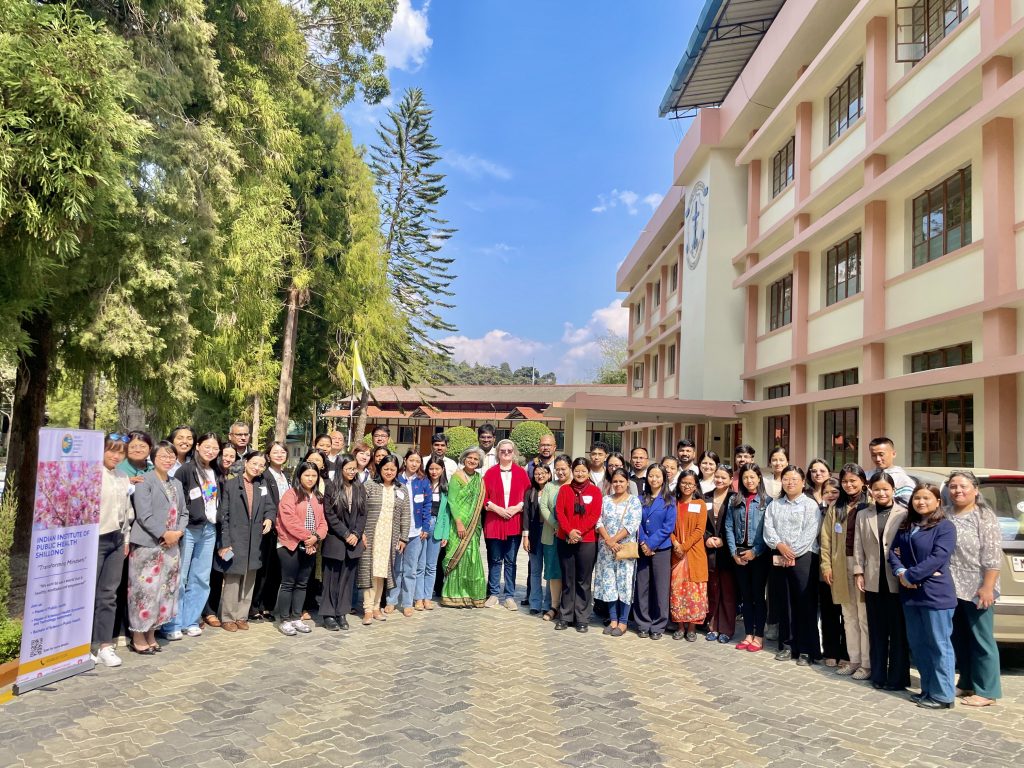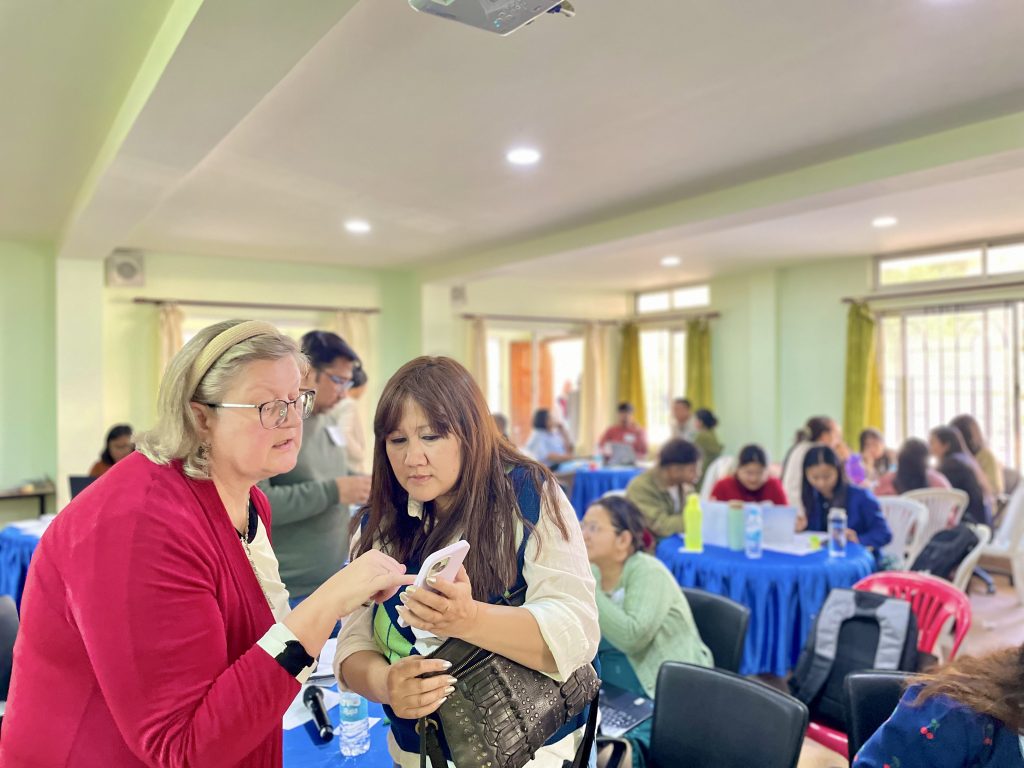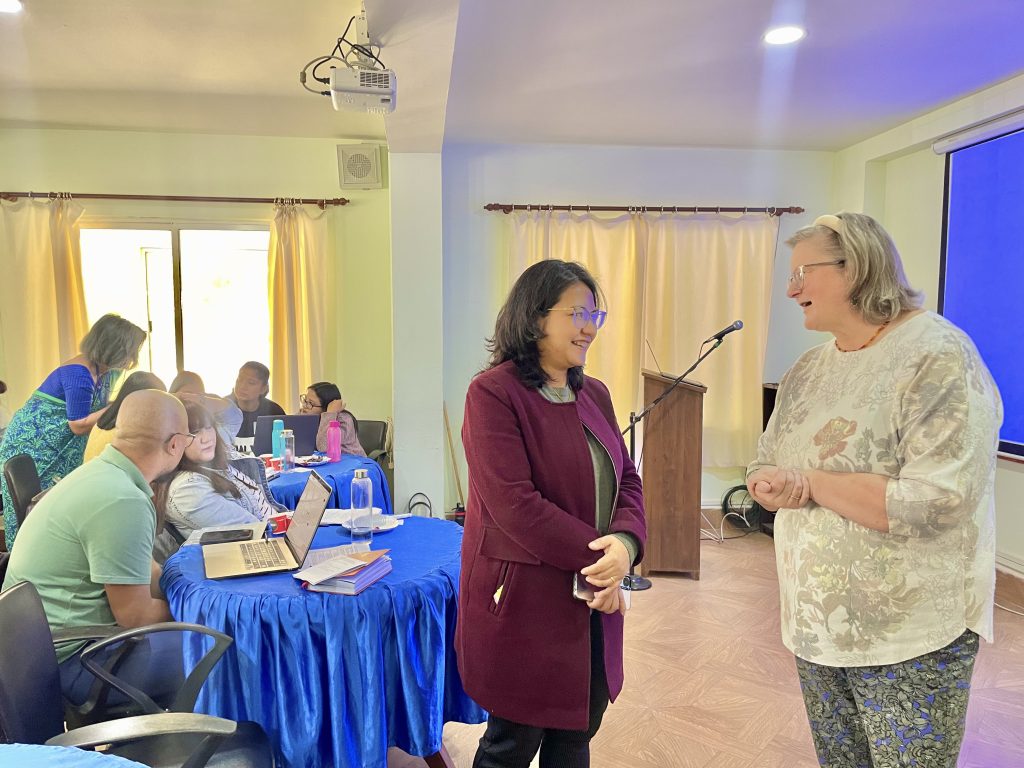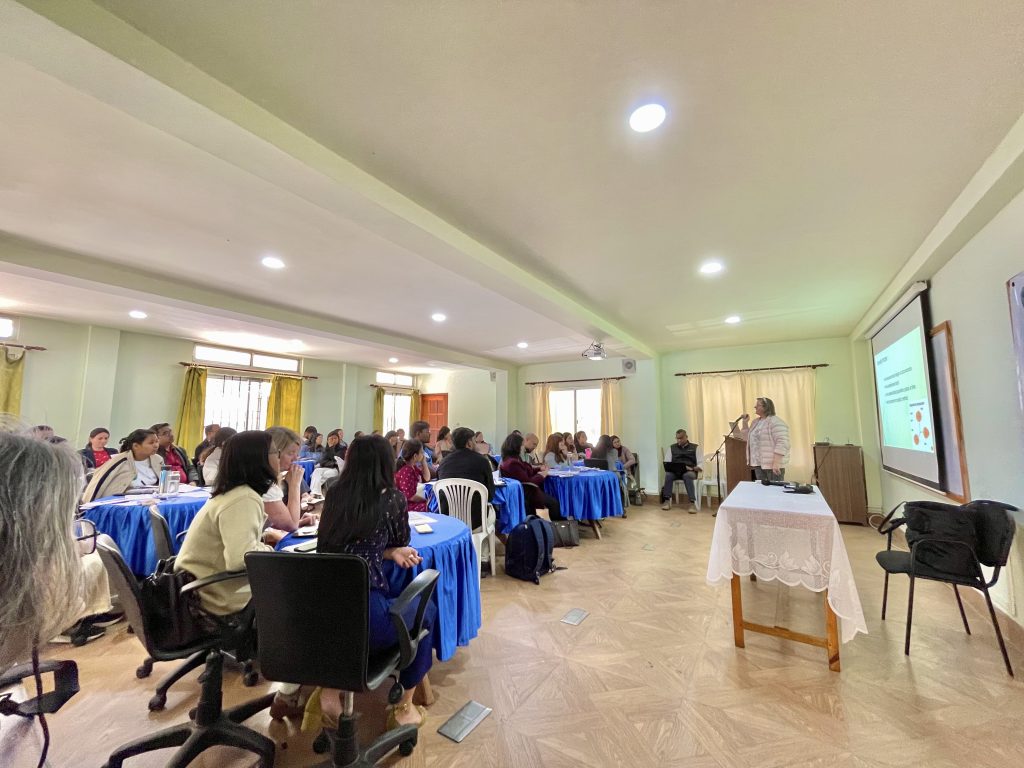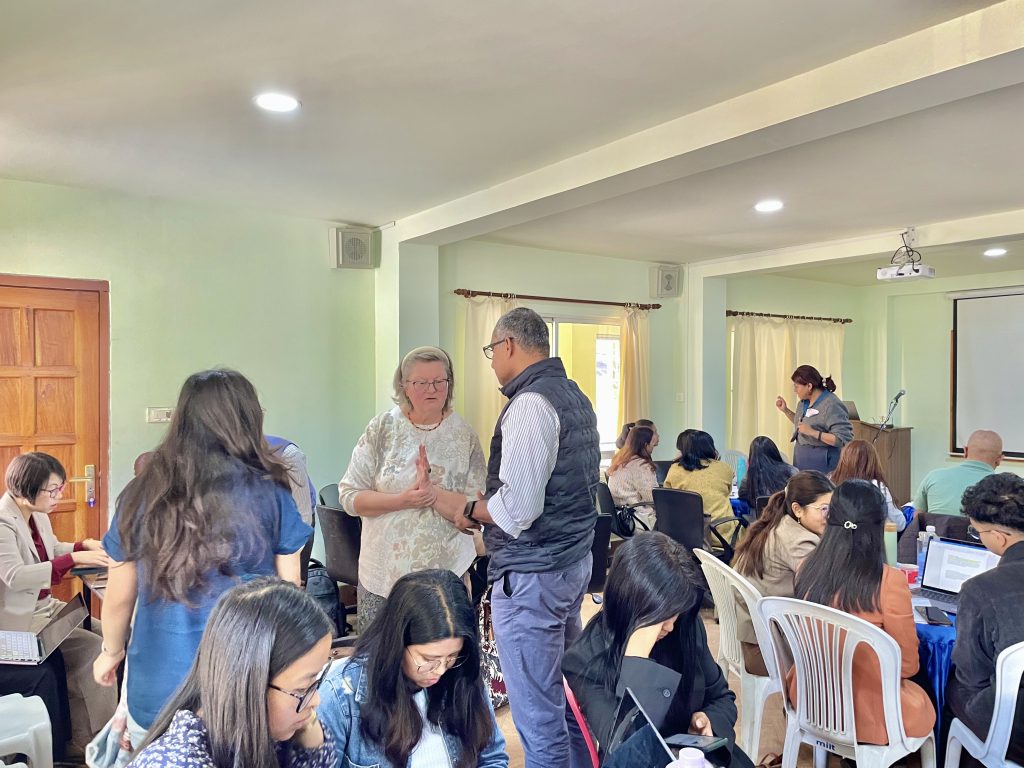The Indian Institute of Public Health, Shillong, MIIT Brookdene, hosted a two-day Capacity Strengthening Workshop on Manuscript Writing on March 18 and 19, 2025. The workshop was facilitated by Dr. Elena N. Naumova, a PhD professor and Chair at the Gerald J. and Dorothy R. Friedman School of Nutrition Science and Policy at Tufts University, Boston, USA.
There were 45 participants from different institutions, including Meghalaya Legislative Research Fellows, Christian Medical College Vellore, Meghalaya District Research Fellows (MBDA), Martin Luther Christian University, Meghalaya Institute of Governance, and Nagaland Institute for Science and Technology. Members of the Indian Institute of Public Health Shillong also took part.
Day 1: The Value of Effective Communication
The workshop’s first day was centred around explaining the participants in comprehending the importance of clear communication in academic writing. Writing manuscripts is not just a technical necessity as speaker highlighted; Dr. Naumova stressed that it is a potent tool for researchers to disseminate their findings and advance knowledge worldwide. A well-written manuscript, she emphasized, is a critical communication tool that reflects the author’s research experience.
The expectations of graduate training in the twenty-first century, with an emphasis on the fundamental knowledge, abilities, and attitudes needed for both academic and professional success, were the subject of significant discussion. Bloom’s Taxonomy was presented to the participants as a helpful framework for organizing their study objectives and clearly presenting their results. It emphasized the importance of publication as the result of thorough research, encouraging participants to see the publishing process as an important aspect of their academic career.
The session also covered the different obstacles that researchers encounter when trying to publish their work. Dr. Naumova offered insightful advice on overcoming typical challenges and comprehending the subtleties of scholarly publishing. By investigating a variety of publications, including case studies, review papers, and original research articles, participants were better able to decide which format would be best for their work.
Participants were able to put the ideas they had learned into practice through a hands-on practical exercise. In addition to encouraging participants to improve their approach to academic writing, this interactive session promoted teamwork. A lively Q&A session concluded the day, where participants had meaningful conversations with Dr. Naumova and asked for more advice on their individual problems.
Day 2: The Value of Science Dissemination
The workshop’s second day was about the significance of efficiently communicating scientific discoveries. Dr. Naumova emphasized the importance of reaching a wider audience with publications that are easily readable and well-structured. The importance of methodically reviewing each stage of the submission process was highlighted in the comprehensive Reviewer’s Guide that was presented to the participants.
Ensuring proper formatting, confirming journal selection and prioritization, and obtaining all required documentation including conflict of interest statements, IRB approvals, clinical trial registrations, and copyright or intellectual property rights were key topics. Additionally, participants received helpful guidance on how to increase the chances of a successful publication by creating a list of possible reviewers, preparing an engaging cover letter, and defining data-sharing requirements.
Dr. Naumova also underlined the importance of carefully following submission guidelines, noting that a well-written manuscript reduces the likelihood of rejection. She focused on clearly presenting the methods, results, discussions, and references throughout the session, offering insights into preserving the overall quality and authenticity of the manuscript.
Participants had thoughtful conversations about the difficulties non-native English speakers encounter when writing for academic audiences. Dr. Naumova emphasized the significance of formatting, style, and appearance, while offering practical advice to improve professionalism and readability.
Addressing typical issues that arise during data analysis was another key focus of the day. Participants learned how to recognize and correct errors to ensure accurate representation of results. This practical approach encouraged them to critically assess their data and strengthen the validity of their analyses.
During the open discussion that followed the workshop, participants were able to ask questions, share their experiences, and gain further insights from Dr. Naumova. Participants concluded the two-day workshop with a comprehensive understanding of the manuscript writing and publication process, equipped with the skills and knowledge to navigate it successfully.
